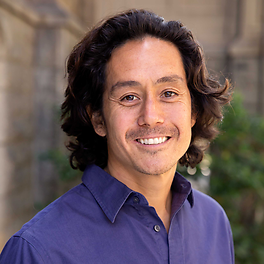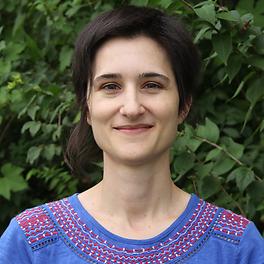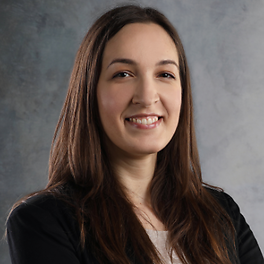October 06, 2021 | News | Workshop
Migration and Mobility Research in the Digital Era (MIMODE 2021)

© adobe.stock.com/Carlosgardel
The recent availability of massive amounts of digital data have profoundly revolutionized research on migration and mobility, enabling scientists to quantitatively study individual and collective mobility patterns at different granularities as generated by human activities in their daily life. Harnessing such digital data offers many new opportunities to study migration and mobility and fill in the gaps left by traditional data. At the same time, such innovative data sources also come with several limitations, biases, and challenges, which have led to diverging research methodologies and frameworks, requiring even greater effort in their operationalization and communication to stakeholders and policy makers.
The aim of this satellite session is to bring together researchers from different fields and practitioners from around the world to facilitate a conversation on the use of innovative digital data sources, new methodologies, empirical findings, and critical challenges of studying migration and mobility in the digital era.
Topics of interest include, but are not limited to:
- New data sources for mobility and migration research, challenges and opportunities
- Internal and international migration, short- and long-term mobility
- Modeling and predicting human mobility patterns
- Machine learning and AI methods for studying mobility
- Longitudinal analyses and empirical studies of mobility and migration
- Socio-economic and environmental drivers of migration
- Integration and segregation of migrant populations
- Measuring the impact of natural disasters, conflicts, climate change, and the COVID-19 pandemic on migration
- Access to mobility data, open science, and privacy concerns
- Evaluation and development of migration policy
Registration & Venue
MIMODE 2021 is a satellite of the Conference on Complex Systems CCS2021, and will take place in Lyon (and online) on October 27, 2021.
Satellite participants (with or without abstract submission) will have to register following the procedure described in the CCS2021 conference website: ccs2021.univ-lyon1.fr/#REGISTRATION
Presenting authors can indicate their availability to travel to Lyon in October 2021 in the submission platform. We will consider researchers’ needs and organize our satellite event accordingly as we approach the date of the event. More details will follow soon.
The conference venue will be the Lyon Convention Centre named Cité | Centre de Congrès | Lyon and located in
50 quai Charles De Gaulle
69463 Lyon Cedex 06
To know more about the venue, please visit the conference website: ccs2021.univ-lyon1.fr/#CONVENTION-CENTER
Program
9:00 - 9:10 Welcome & Opening
9:10 - 9:55 Keynote Talk
Andrew Tatem.
Geospatial data integration for mapping subnational population mobility and migration
9:55 - 10:45 Contributed Talks
Qing Guan.
Relating spatial integration and other aspects of immigrant integration using Australian data
Jonas Wiedner.
Spatial patterns in ethnic minority business networks in Germany: Leveraging register data with machine learning techniques
James Raymer, Qing Guan, Tianyu Shen, Arkadiusz Wiśniowski and Juliet Pietsch.
Indirect estimation of international migration flows for the Asia-Pacific Region: Application of a generation-distribution model
10:45 - 11:15 Coffee Break
11:15 - 11:45 Invited Talk
Emilio Zagheni.
Measuring and understanding migration of scholars: Evidence from bibliometric data.
11:45 - 13:00 Contributed Talks
Jakub Bijak, Jason Hilton, Martin Hinsch, Sarah Nurse, Toby Prike and Oliver Reinhardt.
Bayesian model-based migration studies: Connecting data and theory
Massimiliano Luca, Filippo Simini and Luca Pappalardo.
Deep Gravity: Generate Migration Flows with Deep Neural Networks and Geographic Information
Alessandra Urbinati and Giancarlo Ruffo.
Measuring the scientific brain drain: a country perspective
Ebru Sanliturk and Francesco C. Billari.
Search for a New Home: Refugee Stock and Google Search
13:00 - 14:30 Lunch Break
14:30 - 15:15 Keynote Talk
Vanessa Frias-Martinez.
Big Data and Human Migration Analyses: Methods, Insights and Barriers
15:15 - 16:15 Contributed Talks
Xinyi Zhao, Samin Aref, Emilio Zagheni and Guy Stecklov.
The interplay between migration, gender, career stages, and citations: Evidence on German-affiliated researchers from Scopus
Victoria Prieto Rosas, Julieta Bengochea, Camila Montiel and Gabriel Barasch.
Facebook tagging to examine the impacts of COVID19 pandemic on migrant populations in Montevideo
Sara Heydari, Zhiren Huang, Alejandro Ponce de León Chávez, Takayuki Hiraoka, Tapio Ala-Nissilä, Jari Saramäki, Lasse Leskelä and Mikko Kivelä.
Estimation of country-scale mobility during COVID-19 interventions
16:15 - 16:45 Coffee Break
16:45 - 17:20 Contributed Talks
Pavlos Baltas, Demetris Stathakis and Leonidas Liakos.
Monthly seasonal population estimations based on data derived from Satellite images and Social Media.
Stefanie Kley and Tetiana Dovbishchuk.
How a Lack of Green in the Residential Environment Lowers the Life Satisfaction of City Dwellers and Increases Their Willingness to Relocate
17:20 - 18:05 Keynote Talk
Joshua Blumenstock.
Accurate targeting of emergency cash transfers using mobility data and machine learning
18:05 - 18:10 Final Remarks & Conclusions
Invited Speakers

© courtesy of Joshua Blumenstock
Joshua Blumenstock
Joshua Blumenstock is an Associate Professor at the U.C. Berkeley School of Information, the Director of the Data-Intensive Development Lab, and the faculty co-Director of the Center for Effective Global Action. His research lies at the intersection of machine learning and empirical economics, and focuses on developing new computational approaches to better understand the causes and consequences of global poverty.
Joshua has a Ph.D. in Information Science and a M.A. in Economics from U.C. Berkeley, and Bachelor’s degrees in Computer Science and Physics from Wesleyan University. He is a recipient of an NSF CAREER award, the Intel Faculty Early Career Honor, a Gates Millennium Grand Challenge award, a Google Faculty Research Award, and the U.C. Berkeley Chancellor's Award for Public Service. His work has appeared in a variety of publications including Science and Nature, as well as top economics journals (e.g., the American Economic Review) and computer science conferences (e.g., ICML, KDD, AAAI, WWW, CHI).

© courtesy of Vanessa Frias-Martinez
Vanessa Frias-Martinez
Vanessa Frias-Martinez is an associate professor in the iSchool and UMIACS, and an affiliate associate professor in the Department of Computer Science at the University of Maryland (UMD) where she also leads the Urban Computing Lab. Frias-Martinez's research areas are data-driven behavioral modeling and spatio-temporal data mining. Her research focuses on the use of large-scale ubiquitous data to model the interplay between human mobility patterns, social networks and the built environment. Specifically, Frias-Martinez develops methodologies to model and predict human behaviors in different contexts as well as tools to aid decision makers in areas such as poverty, natural disasters or urban planning. Before coming to UMD, she spent five years at Telefonica Research developing algorithms to analyze mobile digital traces. Frias-Martinez is the recipient of a National Science Foundation (NSF) CAREER Award and a La Caixa Fellowship. She received her PhD in Computer Science from Columbia University.

© courtesy of Andy Tatem
Andy Tatem
Andy Tatem is Professor of spatial demography and epidemiology at the University of Southampton and is the Director of WorldPop (www.worldpop.org), leading a group of 30 researchers and data scientists. He is interested in how populations, their characteristics and their dynamics can be mapped at high resolution across low and middle-income countries. His research has led to pioneering approaches to the use and integration of satellite, survey, cell phone and census data to map the distributions and movement patterns of vulnerable populations for disease, disaster and development applications. He runs international collaborations with national governments, UN agencies and data providers, and leads multiple research and operational projects funded by the Bill and Melinda Gates Foundation, Wellcome Trust, World Bank, GAVI, Clinton Health Access Initiative and others.

© MPIDR
Emilio Zagheni
Emilio Zagheni is Managing Director of the Max Planck Institute for Demographic Research (MPIDR) and Affiliate Associate Professor of Sociology at the University of Washington, where he served as Training Director of the Center for Studies in Demography and Ecology. He received his Ph.D. in Demography (2010) and M.A. in Statistics (2008) from U.C. Berkeley. Zagheni is best known for his work on combining digital trace data and traditional sources to track and understand migrations and to advance population science. In 2016 he received the Trailblazer Award for Demographic Analysis from the European Association for Population Studies for his role in developing the field of Digital and Computational Demography. As co-chair of the Digital Demography Panel of the International Union for the Scientific Study of Population, he has played a key role in favoring collaboration and exchange between demographers, statisticians and computational social scientists.
Program Committee
- Albert Ali Salah, University of Utrecht
- Alessandro Sorichetta, University of Southampton
- Alexander Kustov, Princeton University
- Alina Sîrbu, University of Pisa
- Andrea Milan, IOM’s Global Migration Data Analysis Centre
- Andrea Miranda-Gonzalez, UC Berkeley
- Archana Roy, International Institute for Population Sciences (IIPS)
- Arkadiusz Wiśniowski, University of Manchester
- Aude Bernard, University of Queensland
- Bruno Lepri, Fondazione Bruno Kessler
- Carlos Arcila, USAL
- Chiara Boldrini, IIT-CNR
- Elin Charles-Edwards, University of Queensland
- Emanuele Del Fava, Max Planck Institute for Demographic Research
- Emilio Zagheni, Max Planck Institute for Demographic Research
- Emmanuel Olamijuwon, University of the Witwatersrand
- Floriana Gargiulo, GEMASS - CNRS and University of Paris Sorbonne
- Francesco Rampazzo, University of Oxford
- Francisco Rowe, University of Liverpool
- Giulio Rossetti, KDD Lab ISTI-CNR
- Guy Stecklov, University of British Columbia
- Hannah Postel, Princeton University
- Ingmar Weber, Qatar Computing Research Institute
- Jakub Bijak, University of Southampton
- John Palmer, Pompeu Fabra University
- José-Javier Ramasco, Institute for Cross-Disciplinary Physics and Complex Systems
- Kailash Chandra Das, International Institute for Population Sciences (IIPS)
- Katherine Hoffmann Pham, New York University
- Kiran Garimella, MIT
- Laura Alessandretti, Technical University of Denmark
- Laura Pollacci, University of Pisa
- Leo Ferres, Universidad del Desarrollo & Telefónica R&D
- Luca Pappalardo, ISTI-CNR
- Marc Barhelemy, Institute of Theoretical Physics
- Mark Ellis, University of Washington
- Michael Szell, IT University of Copenhagen
- Michele Tizzoni, ISI Foundation
- Miranda Jessica Lubbers, Autonomous University of Barcelona
- Niklas Sievers, IOM Global Migration Data Analysis Centre (GMDAC)
- Noemi Derzsy, AT&T Labs
- Qiang Fu, University of British Columbia
- Raffaele Vacca, University of Florida
- Ram B Bhagat, International Institute for Population Sciences
- Rajesh Sharma, University of Tartu
- Siiri Silm, University of Tartu
- Sk Karim, International Institute for Population Sciences
- Sophie Muetzel, University of Lucerne
- Victoria Prieto-Rosas, University of the Republic
- Yao Robert Djogbenou, University of Montreal
- Yuan Hsiao, University of Washington
Organizers

© MPIDR
Daniela Perrotta, Research Scientist, Laboratory of Digital and Computational Demography, MPIDR.
Daniela completed her PhD in Complex Systems for Life Sciences at the University of Turin with a fellowship at the Lab. of Digital and Computational Epidemiology at the ISI Foundation in Italy. Her research focuses on harnessing innovative data-collection schemes and computational methods for modeling human mobility and disease spread, including leading a collaborative effort to collect and evaluate health behavioural data during the COVID-19 pandemic leveraging large-scale Facebook surveys.

© Samin Aref
Samin Aref, Assistant Professor, University of Toronto.
Samin has worked on modeling and analyzing the migration of researchers using large-scale bibliometric data with geographical focus on Mexico, Russia, the United Kingdom, and Germany. Samin holds a PhD in Computer Science from the University of Auckland and has previously been Research Area Chair of Migration and Mobility at the MPIDR.

© Jisu Kim
Jisu Kim, Research Scientist, Laboratory of Digital and Computational Demography, MPIDR.
Jisu holds a PhD in Data Science from Scuola Normale Superiore in Italy. She has worked on exploring and establishing novel methods to improve relevant statistics of international migration using social media data. Her research focuses on the intersection of migration sciences, economics of migration, complex social networks, statistical models and data-driven algorithms.
Contact the Organizers
mimode2021@easychair.org